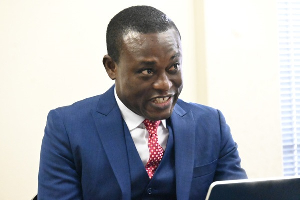In spite of the great resources that the continent of Africa is endowed with, it still remains poor. In fact, it is the only continent that has grown poorer in the past 25 years.
Decades of so-called Structural Adjustment Programmes designed to lift Africa out of its debilitating poverty have rather made the situation worse and it is perhaps now time for leaders of the various African countries to take a hard look at the relationships with ostensible "development partners"
Ghana, for instance, is dependent on its donor nations for about 50% of her budgetary needs. With such a high dependency rate, it means we have to tow the line of these donors in many fields or we will not get the required aid to simply balance our budget.
It is this sorry state of affairs that has prompted an eminent son of the land, Professor Kwabena Frimpong Boateng, Chief Executive of the Korle-Bu Teaching Hospital to declare forcefully that African leaders are just beating about the bush with their indecent haste at accepting the New Partnership for African Development (NEPAD) as a panacea for the continent's woes.
In Professor Frimpong Boateng's view "NEPAD is worse than the Structural Adjustment Programme. It is the beginning of the total enslavement of Africans."
The Chronicle is entirely in agreement with him on this.
According to the Chief Executive, Africa's so-called development partners have for the past 400 years given poor African countries just enough aid to keep them in shape for them to continue milking the continent of its natural resources.
Years of foreign investment in Africa had only made Africans worse off and he likened the continent's development partners to poultry farmers who only feed fowls to be fat and healthy enough for the table.
As has been said and demonstrated many times, for every dollar in aid that they provide, the Western countries extract $11 out of Africa. In our own country, Ghana, the examples of VALCO and AGC are enough to illustrate this point.
Whereas the Ashanti Goldfields Company had been here close to a century, the material benefits that have accrued to the nation can be counted on the fingertips.
Up to now, this country, one of the leading producers of gold worldwide, has no gold refinery of her own. And yet billions of dollars have gone out as company profits.
The NEPAD initiative that has been so quickly swallowed by African leaders will not free this continent's great potential for the benefit of her millions of deprived, disease and poverty-ridden people. Rather it presents another opportunity, thinly disguised, to keep Africa where they want us - down.
As for the Peer Review Mechanism, which Ghana has gleefully volunteered to start, the least said about it, the better.
We do not see how African leaders can be expected to genuinely police themselves. It is like asking the mouse to bell the cat. The whole affair is nothing more than a calculated attempt to throw dust into the eyes of the long-suffering African people.
Britain has by itself set up a 14-member Commission for Africa to tackle problems facing Africa. The UK minister for international development, Hilary Benn said at its initial meeting that, "it is time to take a fresh look at Africa and what can be done to help."
The Chronicle would like to ask when exactly Africa's problems would be solved.
As Professor Frimpong said, our only hope is from "leaders who will put the economic survival of our people ahead of the economic survival of some development partners like us on the continent now."
Well said, Professor!
Opinions of Tuesday, 11 May 2004
Columnist: Chronicle














